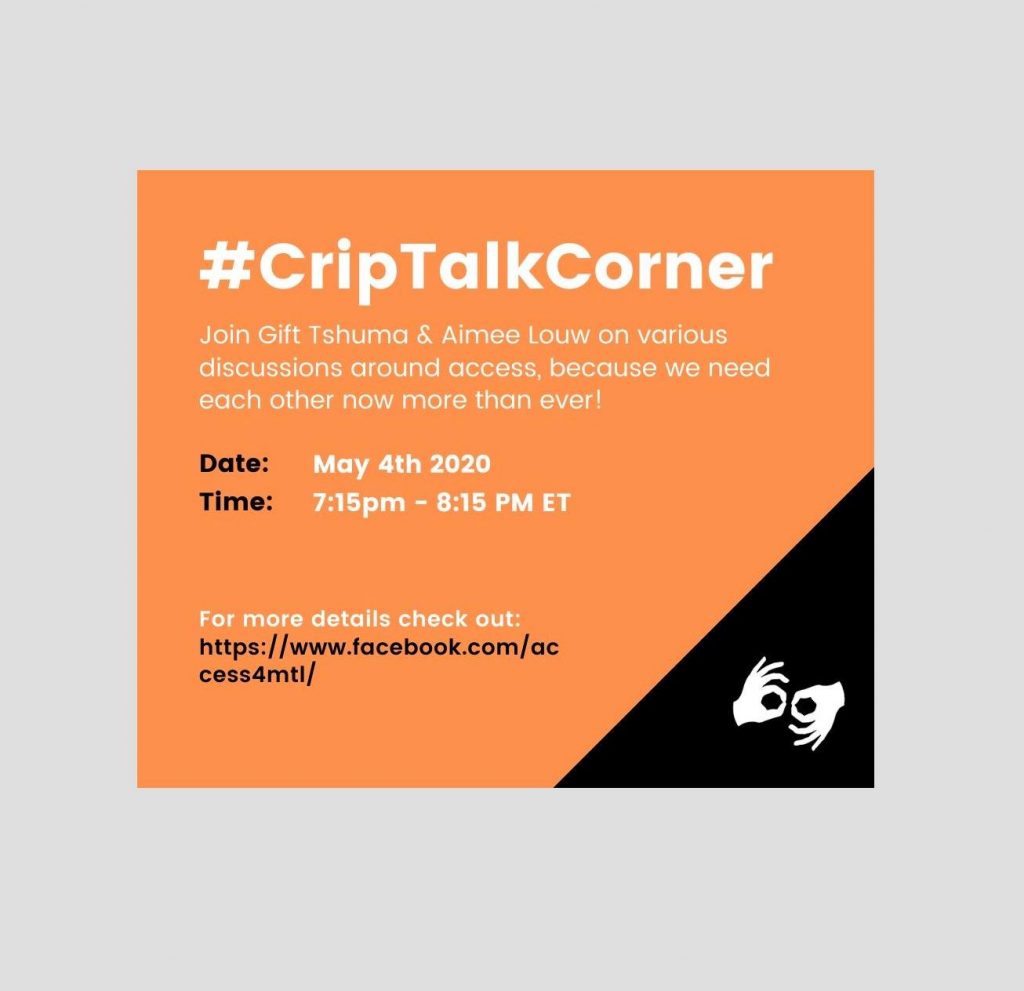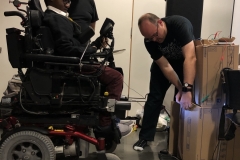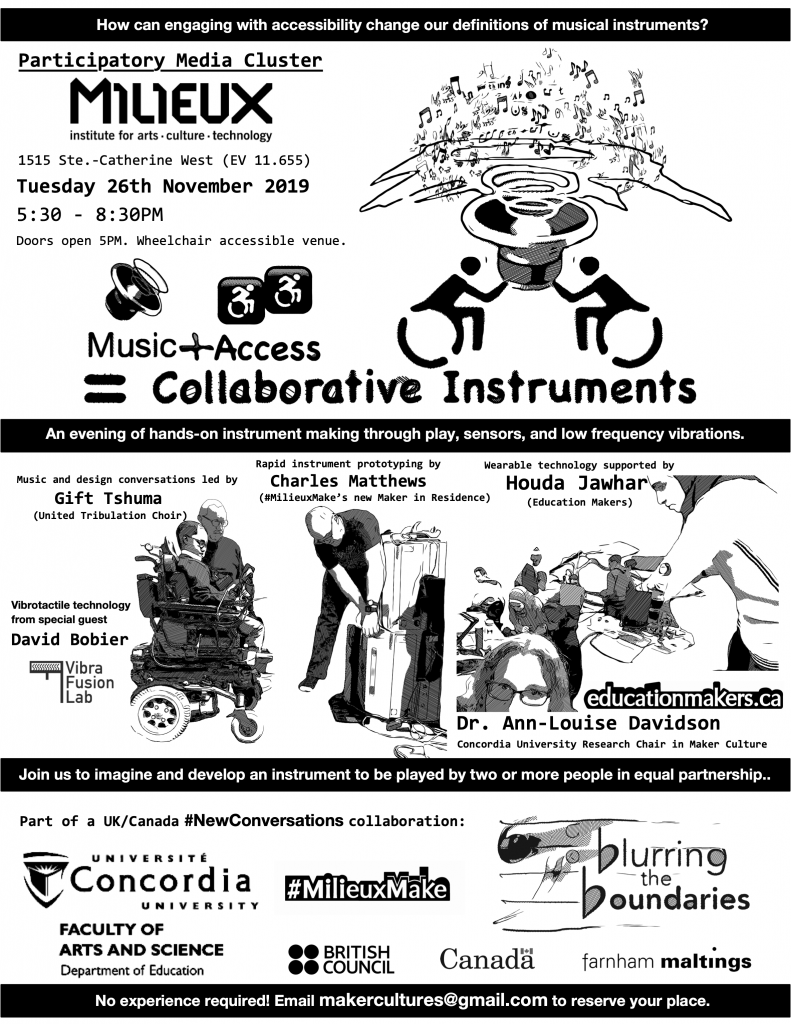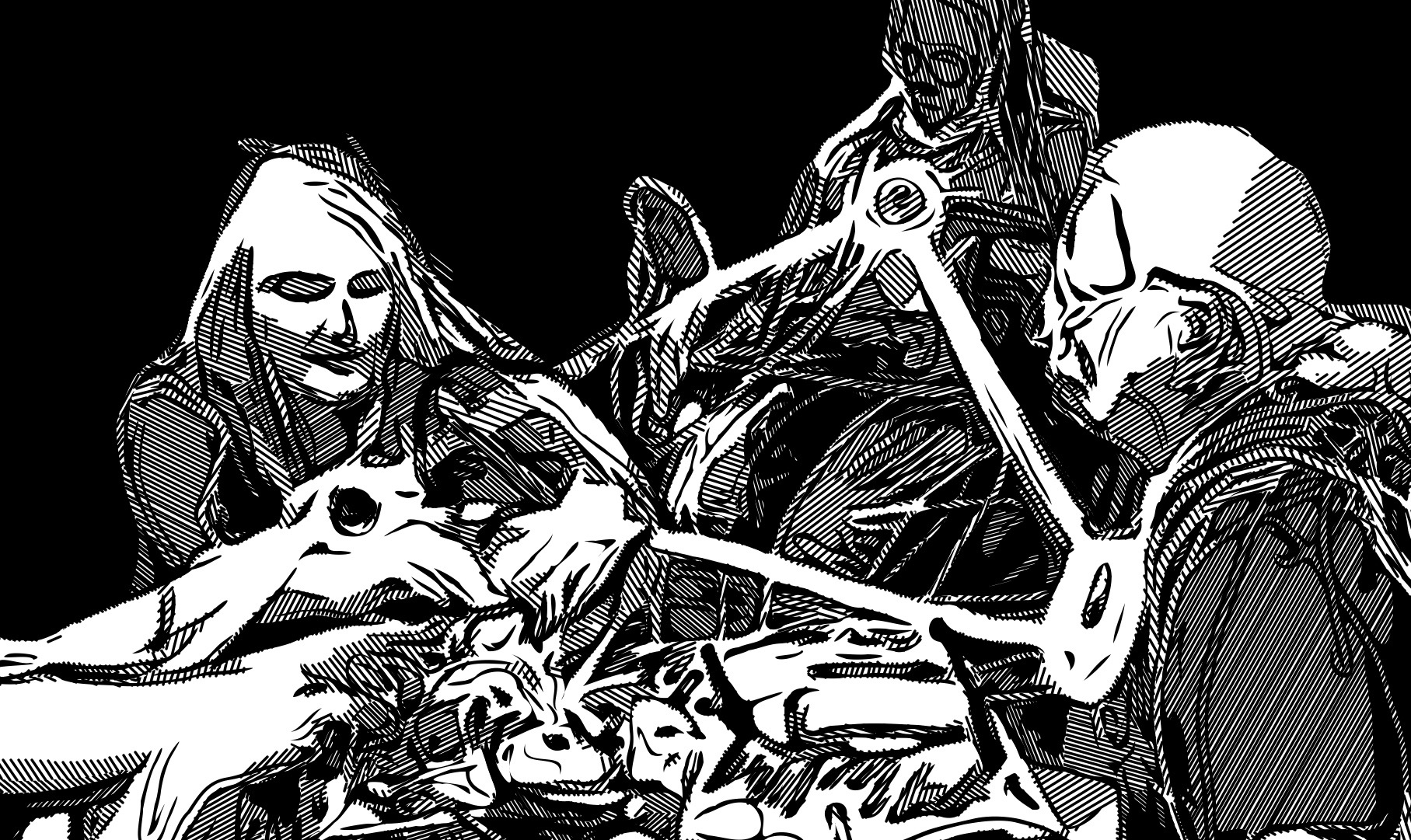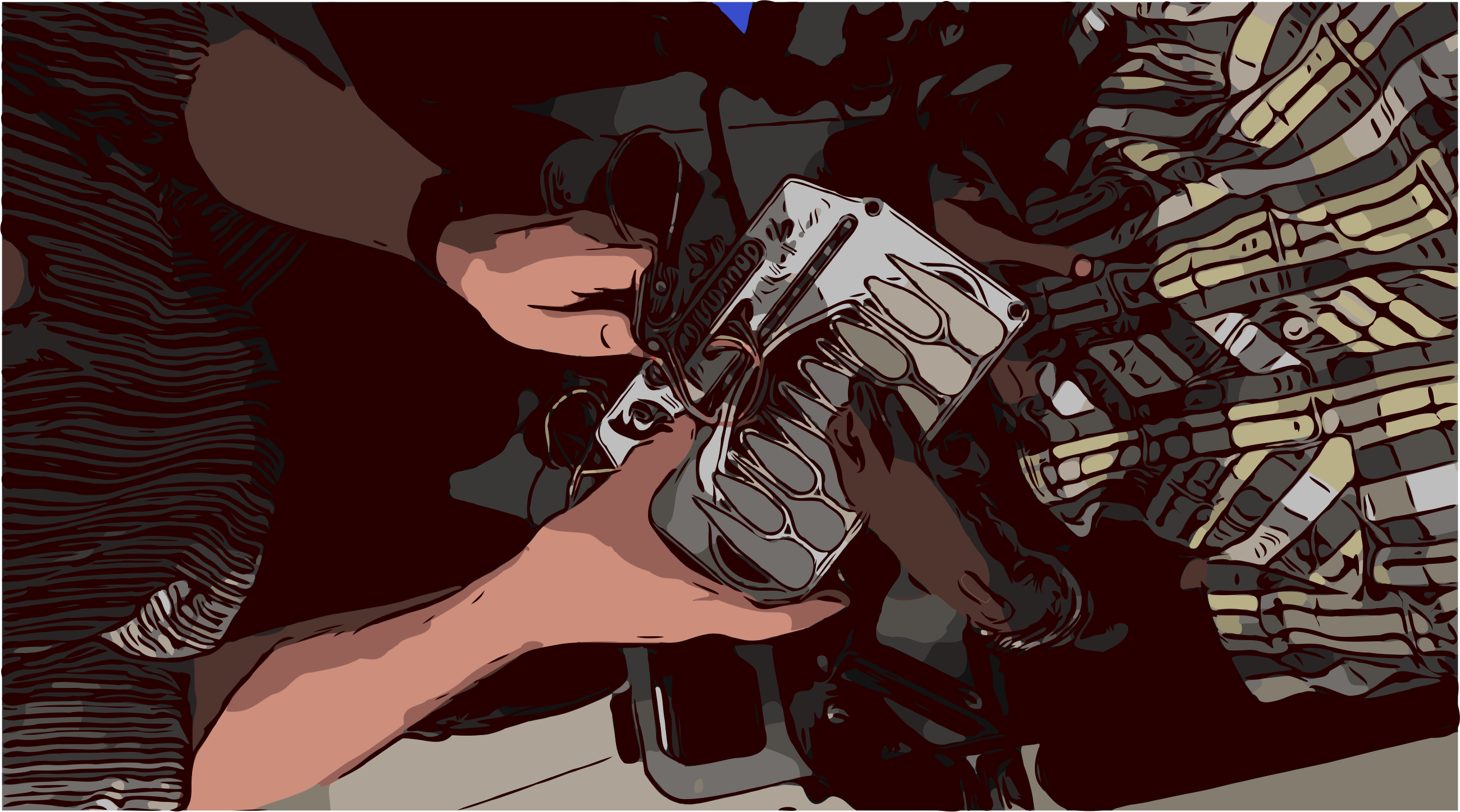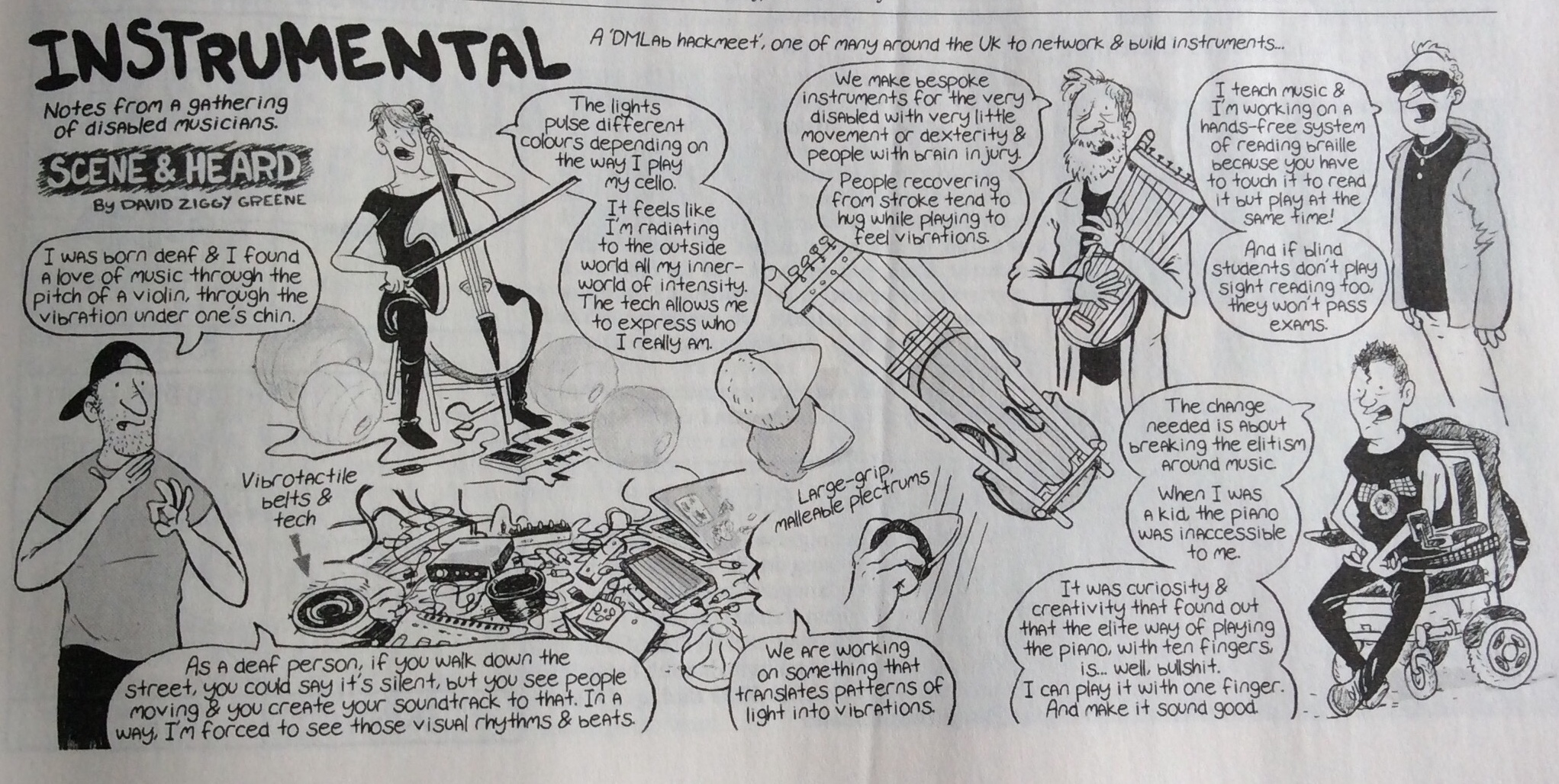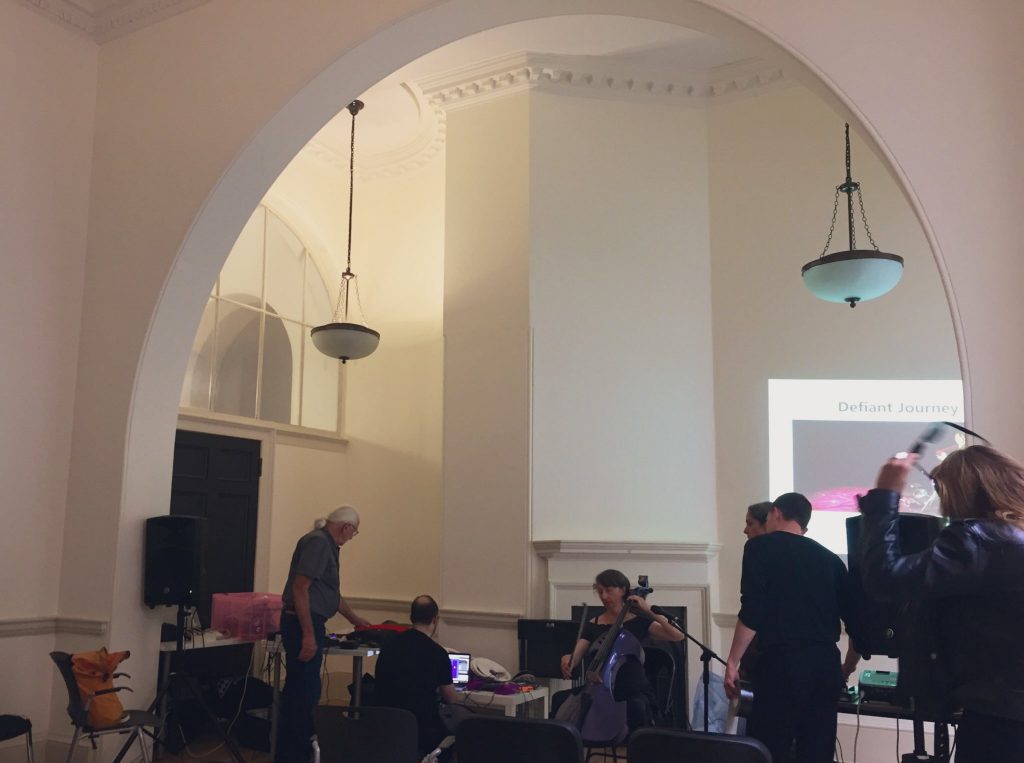Lead artist Gift Tshuma appeared as part of an online discussion hosted by The Walrus on the 29th October. Scroll down to check out the video and transcription! But first, some context:
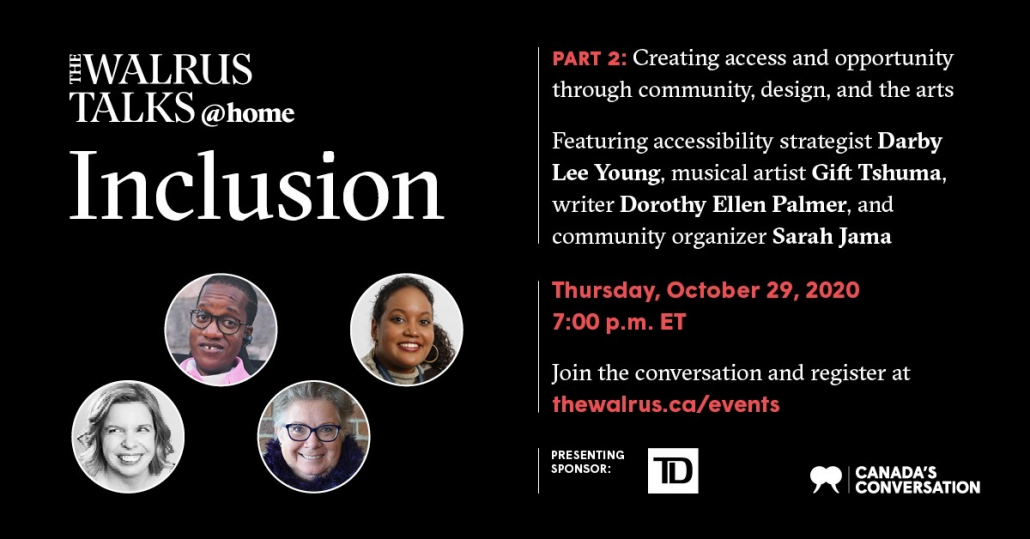
E-flyer text: The Walrus Talks at Home: Inclusion (Part 2)
Creating access and opportunity through community, design, and the arts
Four speakers on how the arts, design, and community-building in everyday society can foster opportunities and promote accessibility
Featuring five-minute talks and Q&A with:
-Sarah Jama, community organizer
-Darby Lee Young, principal accessibility strategist, Level Playing Field
-Gift Tshuma, musical artist
-Dorothy Ellen Palmer, writer
The Q&A was facilitated by Aimee Louw , TD fellow on disability and inclusion, The Walrus (and also co-host of Accessibilize Montreal’s #CripTalkCorner podcast).
Find out more about Gift’s practice on his artist page here. Our research and development sessions were supported through the New Conversations programme by the British Council, Canada High Commission in the UK and Farnham Maltings, with travel and access supported by Canada Council for the Arts.
Hi, my name is Gift Tsuma. I’m an artist from Blurring the Boundaries based in here in Montreal. And today, I’d like to talk to you about creating access to music. And how do we do that practically you may be wondering.. Well, I think it’s important to, to look at the following questions like: are we identifying or creating space to create access within the music scene, whether it’s in the design of instruments, or the music technology being used? And also, another question that is very important is: what are disabled artists already doing out there with material that they have?
This actually makes me think of a disabled artist based in the UK, his name is John Kelly. He actually designed an electric guitar called the Kellycaster. And he designed it in a way that was actually accessible to him, where he’s able to strum the guitar with these right hand, and to change the chords, he uses the keyboard to do that, and he did that with his team. So Blurring the Boundaries, which is a collective of artists based in the UK and Canada, tries to blur the boundaries when it comes to design phase of musical instruments, and music technology. And our collective is actually based on the famous slogan, Nothing About Us Without us, Nothing About Us Without Us.
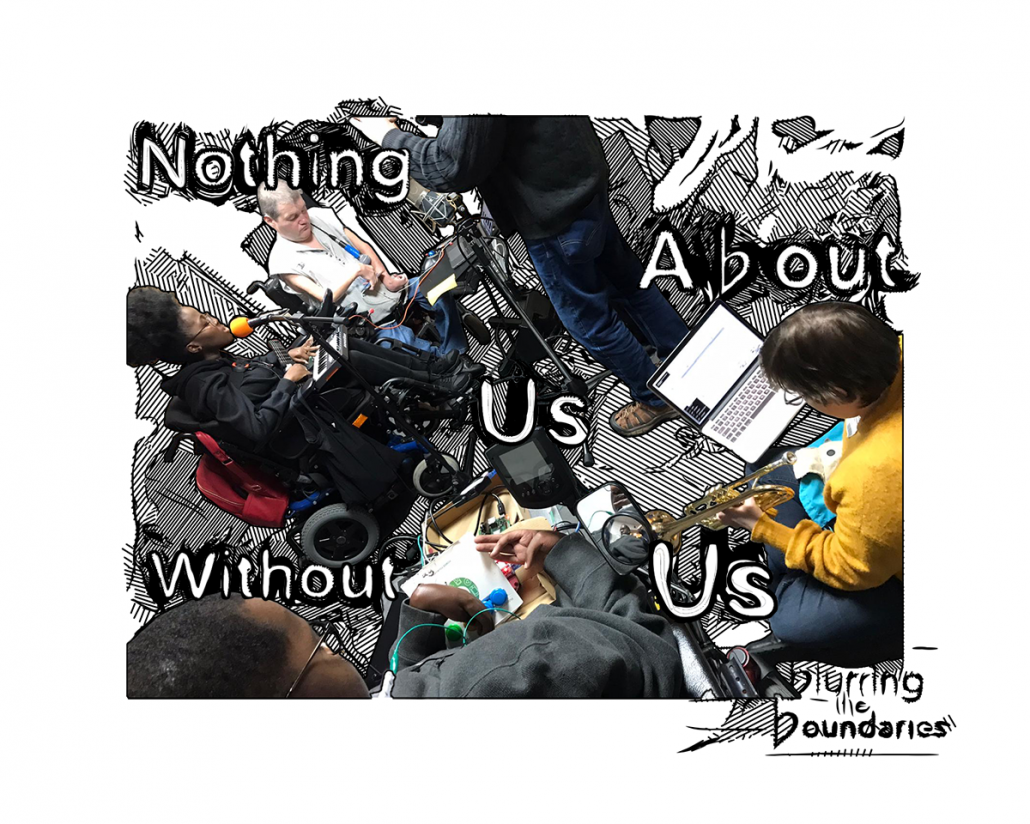
It is really important that those who have a disability are involved within the design phase, that they actually be innovators. And it is very important that we dismantle the hierarchy that often exists between so called experts, and the subject or the artists involved. We do this through an improvisation process, or when we do musical technology and design, one, some of the important variables that are dear to us are that the tools that are being used to make an instrument accessible, have to be cost efficient, and open source…or at least free. We all like free stuff, right? So if resources are open source, then people have the option to actually customize the tools and the resources to their own needs.
And just to bring them back again, in terms of the goals, we want to identify the barriers. We want to identify the strengths and to identify the resources. Once you’ve done that, then we’re able to create a community. And last year, last year in the fall we were able to meet a great community of artists in the UK, and we were able to have R&D sessions (research and development sessions), where we created instruments and software. And there was no hierarchy between experts and innovators. Everyone was in an equal playing field.
To do that successfully, it requires a certain level of openness .. what do I mean by that? Well, we like to take a jazz approach, meaning improvisation. And when we’re designing something, we do not have an expectation on end result. But we want people to have an open mind to explore different things, because you’re actually able to reach results that you may not have thought of before. And that’s what we base our our workshops on. It’s actually an open contract to getting an end result for that. And honestly, when it comes to music, it is about community building. It is about connecting with people and expression. And that’s what we try to do. If that’s something that interests you, get in touch with us at blurringtheboundaries.org and you can also check out our social media as well: @blurtheboundary
We’d love to connect and make some music with you.
Find out more about John Kelly and the Kellycaster here!
Watch the rest of the event on the Walrus YouTube channel:

